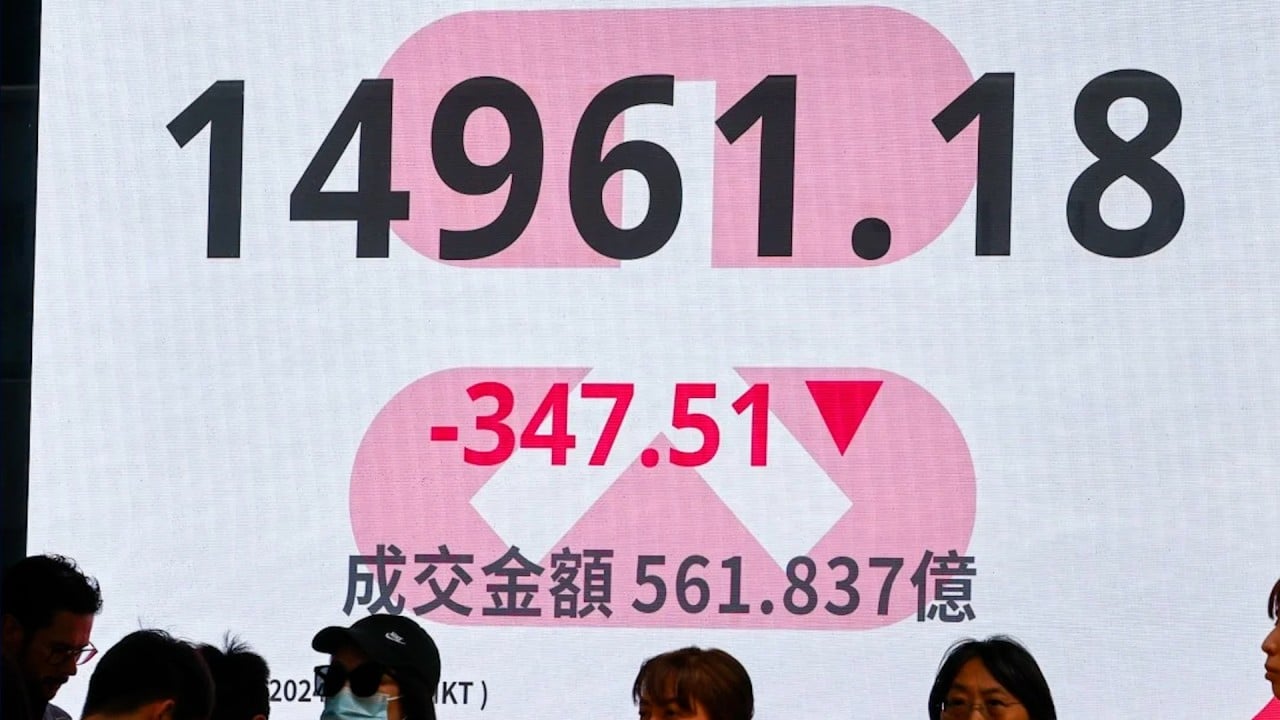
01 Feb Opinion | Worst may be over for Hong Kong stocks – it’s time to buy
Hong Kong has almost always been cheap. I’m not talking about the cost of housing or the prices in the supermarkets – but the value of the stock market. For the decades leading up to the handover in 1997, the Hong Kong market was consistently one of the cheapest in the world, as measured by the time-honoured ratio of share price to company earnings (P/E).
Scores of investors – usually those who think of themselves as “masters of the universe” – were caught out thinking that the market would always rise to match global valuations.
Hong Kong was cheap, despite its superb economic growth in the 1980s and 1990s, because of the uncertainty regarding the handover – and markets don’t handle uncertainty well. That anomaly disappeared as the post-handover period finally saw P/E ratios catch up with those elsewhere.
This was capitulation – the point at which everyone gives up. Oh, to have bought some call options at that stage. The worst thing an investor can do is to know that they have the right investment idea – and not execute the trade.
These measures, as well as those taken over the past few months, have given considerable support to the US$18 trillion economy – a sizeable proportion of which should flow into share prices.
The West has injected a great deal of liquidity into its economies to stave off recession, as seen by the extraordinary rise in US and European markets. In the past two years, the US market has outstripped Hong Kong by over 44 per cent.
Global disinflation has been encouraged by the lower prices of goods and services sold to the world from China, the falling value of the renminbi, and because sluggish domestic demand has lowered global commodities prices.
Given the increasingly large stimulus being injected into it, a Chinese market recovery is probably at hand. This is likely to lead to exported inflation and renewed worries in the US of Fed action to increase interest rates. According to this forecast, China would recover while the US and Europe markets would slide.
Beijing needs a better strategy to defend Hong Kong’s status as financial hub
Beijing needs a better strategy to defend Hong Kong’s status as financial hub
However, the narratives don’t always work like that. There is still room for a year of optimism in Western economies, even in an environment of rising prices. That is, until reality sets in – and reality looks like a story of critical market fragility ending in a debt crisis. We are still in the midst of a long and extended party before the lights come on and the hangover begins.
However, Hong Kong shares are of extraordinary value, trading at a 36 per cent discount to mainland stocks, and are cheap in P/E terms, with most blue chips yielding more than 5 per cent.
It does not do to shout these things from the rooftops – after all, one might be wrong, but it looks like we might have seen the lows of this cycle. The markets do their best to embarrass the most brave of pundits. Yet perhaps it really is time to speak softly and say, “It’s time to buy Hong Kong”.
Dr Richard Harris is chief executive of Port Shelter Investment and is a veteran investment manager, writer and broadcaster, and financial expert witness

